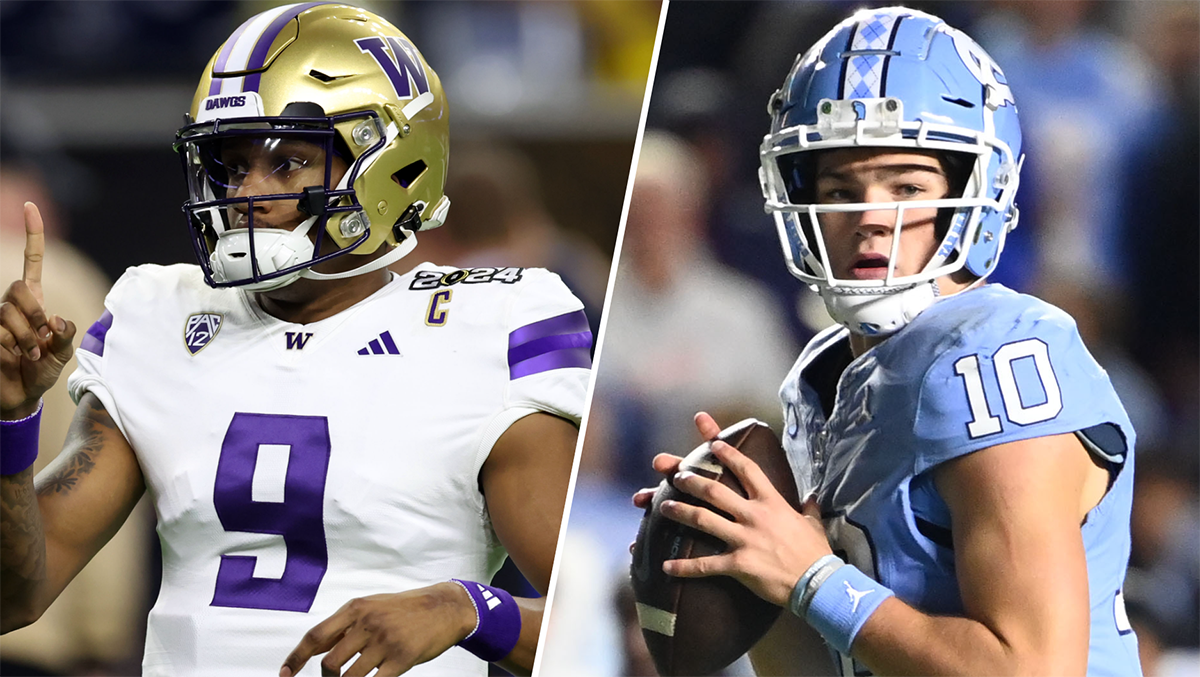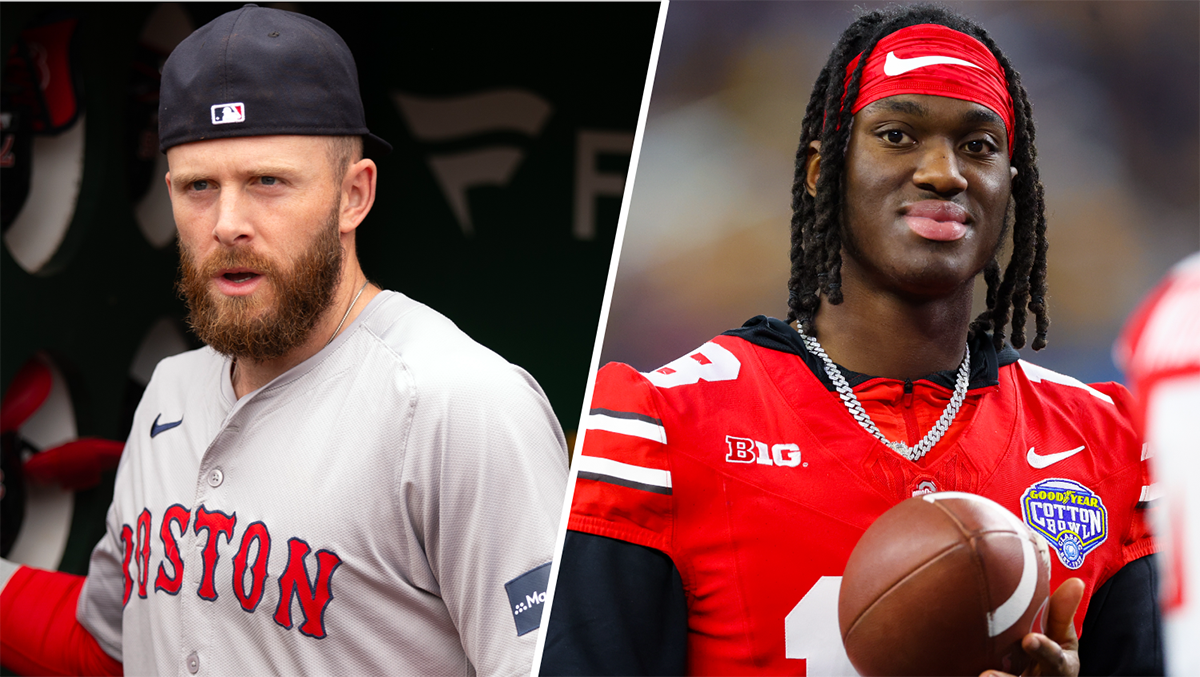It seems that we meet here every April, asking a new version of the same essential question: Why did Bill Belichick do what he did in the NFL Draft?
The Patriots coach has helped us maintain arguments on this for two decades now. We’re draft analysts Thursday through Saturday, and psychoanalysts every other day of the week.
Why didn’t Bill pick that guy? What does he see that the rest of the league doesn’t?
Download the MyTeams app for the latest Patriots news and analysis
You know the routine. The draft rooms change, from Foxboro Stadium to Gillette Stadium to a Zoom from Nantucket. The arguments about players that they should have taken change, from David Terrell to Clay Matthews to Lamar Jackson.
The head scratching — and head banging — remains the same.
Why did he do what he did last week?
New England Patriots
I’ve thought a lot about this over the last several days. And while I still have a gnawing feeling that this draft will eventually have a garage band title — “C Minuses and Regrets” — there are some decisions here that tell us what Belichick is thinking in his post-Tom Brady years.
Let’s start with this: Belichick hates wide receivers.
All right, it’s an exaggeration. But if any coach in the league was going to ignore a historic draft class of receivers, it was going to be this one.
Should he have overlooked the receivers? Of course not. With so much excess at the position, there were a few ways to approach it on Draft Day: stuff yourself at the buffet, as the Raiders did; wait for the top of the class to unexpectedly come to you, as the Broncos and Cowboys did; or hold off until rounds three, four or even five because there’s talent there, too.
The latter option — the value option — seemed to be the most Patriot-like. Besides, if one area of the draft is stacked, that’s another way of saying that it’s statistically your best place to find a real player. But the Patriots, with the least explosive receivers in football, passed. If you study Belichick’s eight Super Bowl rings from New York and New England, you’ll understand why.
When the Bill Parcells/Belichick Giants won their two titles, their best receiver was a tight end, Mark Bavaro. The picture became even sharper in New England.
One of the staggering Brady stats is that in six Super Bowl wins, he completed 172 passes. Just two of those 172 went into the hands of a receiver drafted in the first round. Those two grabs were by Cordarrelle Patterson, the first-rounder who Belichick eventually acquired for a fifth-round pick.
You can clearly see both points. N’Keal Harry last season was the aberration; Belichick usually doesn’t spend his good money at the receiver store. Yet he’s still found a way to get some good ones and also grow his ring collection.
Listen and subscribe to The Michael Holley Podcast — or watch Holley with Peter King on YouTube:
I can’t help wondering, though, if his charmed football life has insulated him.
While it’s a tribute to Belichick’s coaching and team-building that he has been so successful without highly drafted receivers, it’s also an amazing achievement by Brady. There won’t be another Hall of Fame quarterback who plays for 20-plus years. And if that somehow happens, he won’t have to wait until year 20 before his team calls the name of a first-round receiver.
This is not normal.
The only other modern quarterback who will go into the Hall with a similar story is Aaron Rodgers, and he’s got a single ring. That Belichick and Brady were able to win a half dozen Super Bowls is something else they can talk about when they executive produce their own “The Last Dance” 20 years from now.
Based on the routes Belichick took last week, you know what his short-term vision for the Patriots is in 2020. He went safety, linebacker, linebacker, tight end, tight end, kicker. As I watched it all unfold, I thought the headline I’d use to describe it was, “BB Gives Zero ‘F’s’ About What You Think.”
Why do I say that?
He’s original when he begins to construct a team, so sometimes it leads to selecting Logan Mankins and Sebastian Vollmer and Devin McCourty in slots that no one else would, and sometimes that same vision gets you Jordan Richards and Tavon Wilson. Thirty years later, there still hasn’t been a team that’s drafted a center in the top 15 as he once did. He sees things that others don’t, which is both a blessing and a curse.
Think about it. If you worked for Belichick, would you forcefully tell him to knock it off with the secondary players in the second round? Or joke that he’s the Matt Millen of drafting defensive backs? Many have the nerve; few have his résumé.
But this goes beyond the short-term.
When Belichick and his staff try to figure out opponents’ tendencies, they often ask a simple question: “What are they going to do in ‘Gotta Have It’ situations?”
It’s the same question for Belichick the team-builder. What you saw this past weekend is who Belichick becomes when the assignment is to fortify a foundation. If you look at it that way, the only surprise is that he didn’t get a defensive tackle (it’s why I thought he’d trade up for Javon Kinlaw, who has drawn Richard Seymour comparisons).
Why did he do what he did?
Because in ‘Gotta Have It’ situations, he trusts defense and special teams. That’s clear. What we’ll have to wait a few years to learn from this draft is, you know, if he got it.


